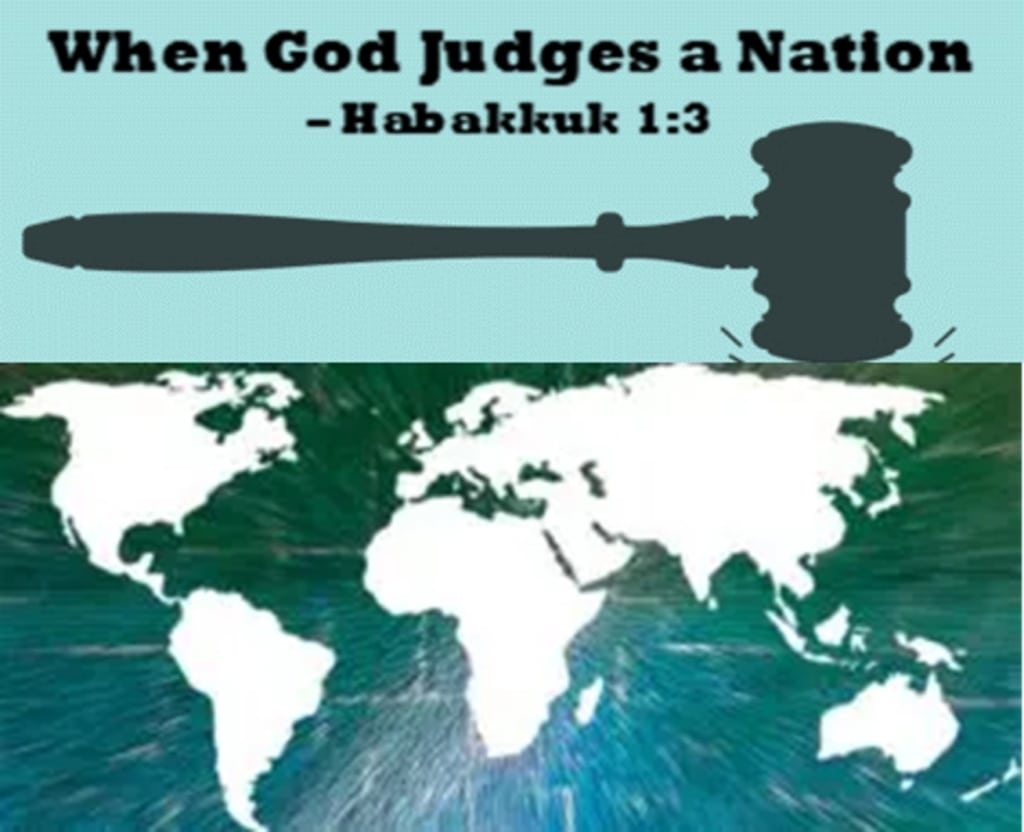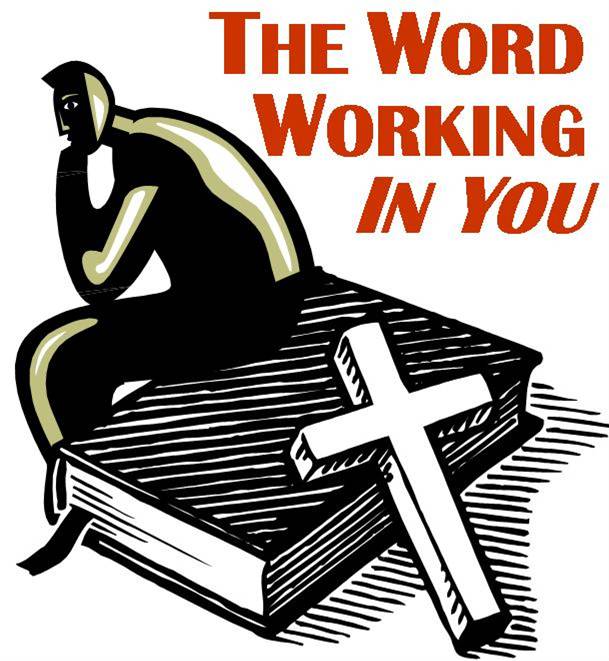
“Why do you show me iniquity, and cause me to see trouble? For plundering and violence are before me; there is strife, and contention arises.”
Hab. 1:3
>>>>Click here for printable Conference Notes <<<<
Highlights of Habakkuk
These are the spiritual insights of Habakkuk that break through the dark and turbulent clouds of confusion and doubt, like glorious sunshine after the storm. As the prophet wrestles with issues of life and death, with doubts and questions, he gains seven insights into the working of God.
It is worth noting that all but one use the covenant name of God—Yahweh. And the one that doesn’t, directs us to rest our faith on Him.
The safest refuge for our souls, when nothing seems to make sense, is to take shelter in the essence and character of God.
Habakkuk 1:12 “Are You not from everlasting, O Lord my God, My Holy One? We shall not die. O Lord, You have appointed them for judgment; O Rock, You have marked them for correction.”
Only an omniscient and omnipotent God can deal with the wicked. The daily task of the believer is to live today by faith.
Habakkuk 2:4 “Behold the proud, his soul is not upright in him; but the just shall live by his faith.”
The only anchor for our souls, in the shifting ebb and flow of time, is the sure and safe harbor of eternity.
Habakkuk 2:14 “For the earth will be filled with the knowledge of the glory of the Lord, as the waters cover the sea.”
We need to withdraw our souls from the clamor and questions of men, to gaze on Christ seated at God’s right hand.
Habakkuk 2:20 “But the Lord is in His holy temple. Let all the earth keep silent before Him.”
When the Word of God shakes our very souls, it is good to be reminded of His purpose, which He is working out through history.
Habakkuk 3:2 “O Lord, I have heard your speech and was afraid; O Lord, revive Your work in the midst of the years! In the midst of the years make it known; in wrath remember mercy.”
Amid the chaos of natural disasters, so called “acts of God,” never forget that attention is being directed to Jesus Christ, and souls are being saved by means of them.
Habakkuk 3:8, 13 “O Lord, were You displeased with the rivers, was Your anger against the rivers, was Your wrath against the sea, that You rode on Your horses, Your chariots of salvation? … You went forth for the salvation of Your people, for salvation with Your Anointed. You struck the head from the house of the wicked, by laying bare from foundation to neck. Selah.”
This humble priest/poet/singer, facing peril and famine, writes the most eloquent statement of faith found in Scripture—to be sung in the coming collapse of the nation!
Habakkuk 3:17–19 “Though the fig tree may not blossom, nor fruit be on the vines; though the labor of the olive may fail, and the field yield no food; though the flock may be cut off from the fold, and there be no herd in the stalls—Yet I will rejoice in the Lord, I will joy in the God of my salvation. The Lord God is my strength; He will make my feet like deer’s feet, and He will make me walk on my high hills … To the Chief Musician. With my stringed instruments.”
Summary of Habakkuk
- Because God is holy, He must judge evil. Because He is faithful, He works all things for the good of His people (Hab. 1:13; Gen. 50:20; Zeph. 3:5; Rom. 8:28).
- God delays His act of judgment, called “His unusual [strange] act” (Isa. 28:21), because He desires that all men might come to saving faith (Hab.2:4; Ezek. 33:11; 1 Tim. 2:3–6; 2 Pet. 3:8–9).
- Genuine and mature faith looks away from the chaos of the present time to the promise of His future kingdom (Hab. 2:14; John 14:1–3; Rom. 8:21–23; 2 Cor. 4:17–18).
- It is good to let God be God, and to rest in His wisdom, authority, and power (Hab. 2:20; Zeph. 1:7; Matt. 28:18; Jude 24–25).
- All the forces of nature and of history are obeying the hand of God to bring as many souls as possible into the fold of the redeemed (Hab. 3:2; John 10:7–11; Rom. 3:23–24).
- When God seems to be shaking Heaven and Earth, remember that the Father, the Son, and the Spirit are waging a spiritual war for the souls of men, women, and children (Hab. 3:8, 13; Isa. 3:10; Nah. 1:7; Zeph. 2:3; Rev. 5:5).
- When we can rest in faith, regardless of external circumstances, we have come to the status of a “hero of the faith” (Hab. 3:17–19; Job 13:15; 19:25–27; Isa. 40:31; Lam. 3:21–27; Phil. 4:11–13).
>>>Click here if you do not see the video/audio lessons below<<<
Gene Cunningham - February 20, 2003
The Word Working In You #6

Conference notes for this series can be found [HERE]
From Series: "1st Thessalonians - The Word Working in You - Uniontown PA 2007"
The Word Working in You' is a study in 1st Thessalonians recorded at Uniontown PA on 19-20 October 2007. The primary focus of the Paul's epistles to the Thessalonians written A.D. 50-51 is Christian living in light of eternity which results in balance. The 'bookends' of 1Th 1:3 and 1Th 5:8 reveal the book's theme: the well-balanced Christian life. The book also teaches that God's Word works through faith. Interestingly this epistle is closely related in content to the Old Testament book of Ruth which provides a perfect biblical illustration of the practical truths of this book.

